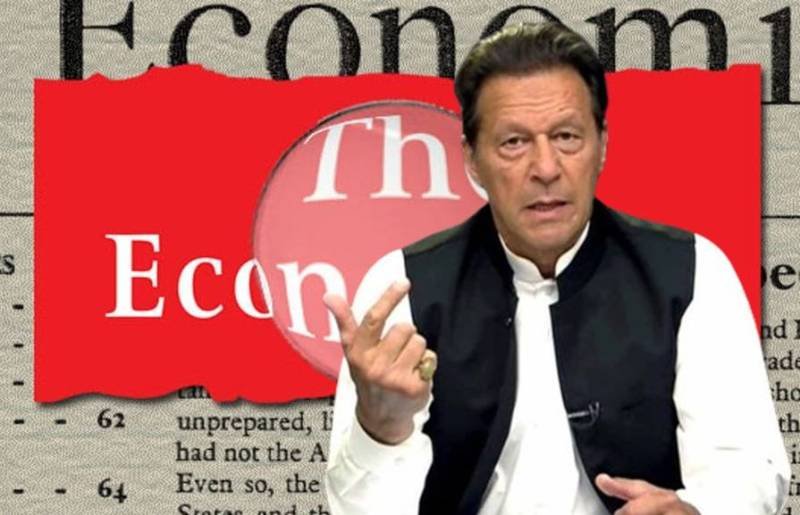Imran Khan Comes under Further Pressure in Pakistan: Economist
In recent weeks, Pakistan has been thrown into political turmoil, with the government declaring the popular party of Imran Khan, Pakistan Tehreek-e-Insaf (PTI), as being involved in “anti-state activities”. Imran Khan, a former prime minister and prominent political figure currently in jail, has been the centre of attention, with accusations ranging from sabotaging negotiations with the International Monetary Fund (IMF) to hiring an American lobbying firm. Additionally, high-treason proceedings have been initiated against him, a charge that carries the death penalty. The Information Minister, Attaullah Tarar, made a bold statement by saying, “Imran Khan and Pakistan cannot go together,” further fueling the ongoing political tensions.
The harassment of the opposition indicates that the minority government of Shehbaz Sharif is under significant Pressure. The Supreme Court’s decision to reinstate PTI to Parliament after it was barred from contesting the general election earlier this year has further escalated the political landscape. Furthermore, with the court ruling that PTI is eligible for a share of parliamentary seats reserved for women and non-Muslims, Imran Khan’s party is poised to become the largest in Parliament, posing a significant challenge to Sharif’s government.
Amidst this, the government faced a setback when Imran Khan was acquitted in an unlawful-marriage case. However, the Information Minister has expressed the government’s intention to appeal against the Supreme Court’s decision. The government seems to be contemplating a ban on PTI, which would initiate a constitutional process mandating the declaration of PTI’s actions as “prejudicial to the sovereignty or integrity of Pakistan”. While this move seems quixotic and legally questionable, the government may be tempted to follow through with its threat, especially after facing electoral setbacks and criticism.
Pl subscribe to the YouTube channel of republicpolicy.com
The government’s troubles extend beyond the political realm, with the International Monetary Fund (IMF) recently approving a multi-billion-dollar bailout for Pakistan, the country’s third in five years. With substantial external debt and liabilities, along with meager tax revenues, the government faces an uphill battle in stabilizing the economy. Additionally, the resurgence of terrorism in the country, evidenced by a surge in militant attacks and fatalities, poses a grave security challenge. This situation demands not just cooperation, but active participation from neighboring Afghanistan to effectively combat terrorism, underlining the importance of international relations in such matters.
The situation in Pakistan is a cause for concern, given its historical implications. The last time a major political party was banned in the country dates back to the 1970s, signifying the seriousness of the ongoing political turmoil. As the government grapples with internal and external challenges, it is imperative to remember the lessons from history and prioritize stability and cooperation. This is not just a suggestion, but an urgent need for the betterment of Pakistan and its people.
















